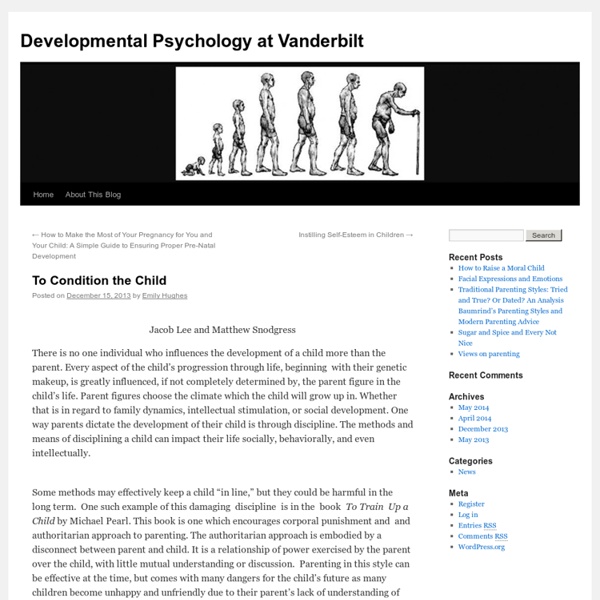How to Use Positive Reinforcement to Improve Your Child's Behavior
When your child misbehaves, rewards might be the last thing on your mind. But, positive reinforcement can be one of the most effective behavior modification techniques.1 You can use positive reinforcement to encourage prosocial behaviors, like sharing or following directions. And, you can use it to prevent misbehavior, like hitting and rule violations. Positive reinforcement can also be an effective way to encourage and motivate your child to be responsible, do their chores, get along with their siblings, or complete their homework assignments without arguing. How Positive Reinforcement Works Most adults go to work so they can receive a paycheck.
Using Reinforcement and Punishment at Home
How do I get my child to listen to me at home? This is a common question I hear from parents. One solution is by using the basic principles of reinforcement and punishment. These principles will allow parents to gain control over their child’s behavior, and they will begin to see a decrease in negative behaviors and an increase in positive behaviors at home. Tips for Using Reinforcement at Home
Risky Teenage Behaviour, Understanding And Preventing It
Every other day, you come across some news about risky teenage behaviour. Either they are doing something completely insane or getting into trouble. Latest in the line of fire is the case of students fooling around on a ledge. Images of them hanging out on open ledges of the 16th floor of Riversound Residences in Sengkang, has spread like wildfire on social media.
10 Normal Teenage Behavior Problems And How To Handle Them
Image: iStock Understanding Teenage Behavior Problems Dealing with a teenager is not easy. No matter how good a parent you are, and how great your relationship with your children is, you are likely to face parenting roadblocks when it comes to your teenager. Behavior problems are common in teenagers. But you can deal with them with ease if you are willing to put in the effort to understand what they are going through and what it is that they expect of you.
Effective Consequences for Teenagers
If you’re having trouble giving effective consequences to your teen, know that you are not alone. Many parents tell me that nothing seems to work, and that coming up with the right thing for their child can seem like an impossible task. If you’re the parent of an adolescent, you may have grounded your child, taken away their video games, or suspended their driving privileges for months on end. But as James Lehman says, you can’t punish kids into acceptable behavior—it just doesn’t work that way. “You can’t punish kids into acceptable behavior.” Rather, an effective consequence should encourage your child to change his behavior — whether that is abiding by the house rules, or treating people respectfully.
How to Properly Use Reinforcement and Punishment - North Shore Pediatric Therapy
Reinforcement and punishment are common terms that most people have heard of and use on a daily basis, whether they realize it or not. Although the concepts seem easy to understand and implement, it can be easy to confuse the basic principles and/or implement them incorrectly. In order to understand the difference between reinforcement and punishment, it is important to understand the definitions of both terms. Reinforcement Reinforcement is a consequence following a behavior that increases the probability that the behavior will increase in the future.
How Operant Conditioning Can Affect Adolescent Development
If you've ever wondered how to encourage or discourage behaviors in your adolescent or why some behaviors persist while others disappear on their own, you may benefit from understanding operant conditioning. If you've ever wondered how to encourage or discourage behaviors in your adolescent or why some behaviors persist while others disappear on their own, you may benefit from understanding operant conditioning. This type of behavior modification employs the concepts of reinforcements and punishments to promote positive behaviors and discourage negative ones.
Teenage boy behaviour problems: Parents are to blame, says Michael Carr Gregg
A FEW years ago I was standing outside my son’s school, when a four-wheel-drive pulled up and woman got out, clutching a folder. She stood a few metres away from me, pulled out a mobile and tapped out a text message. A few moments later a short, skinny boy in school uniform ran up to her. “Hello Simon, here it is, darling,” the woman said, proffering the folder to the boy.




This page mentioned about the negative impact on parent and children relationship for consistent punishment parenting style adopted by parents. It also highlighted that consistent punishment by parents would become classical conditioning for children and eventually causing negative impact on children's socioemotional development. This page marked that consistent discipline with positive reinforcement is key for positive development and upbringing of children. by viviancheng Sep 11